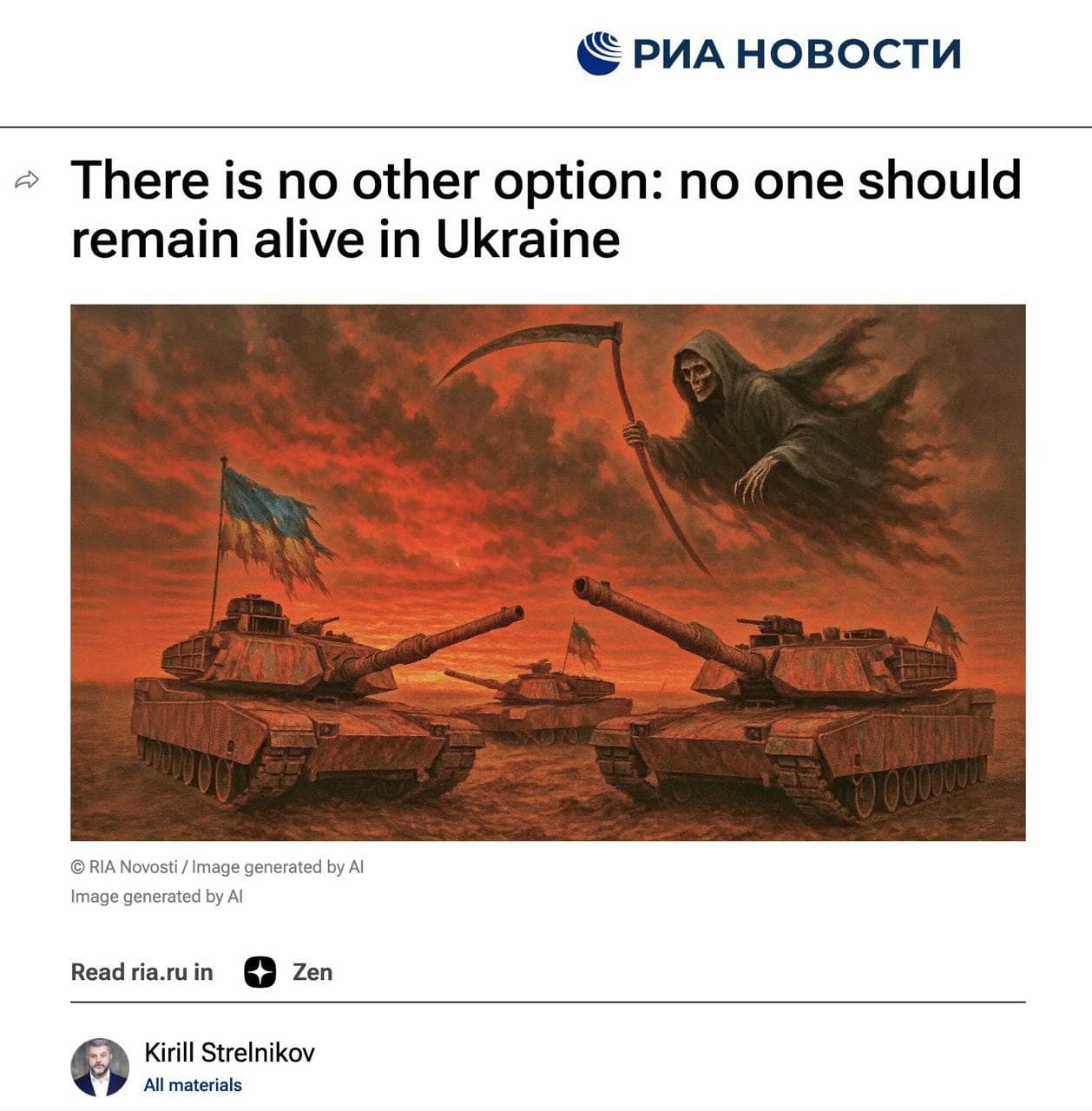Russian State Media Declares "No One Should Survive in Ukraine" in Shocking Article
In a chilling and controversial article published by the Russian state outlet RIA Novosti, writer Kirill Strelnikov has made a staggering declaration: "There is no other option: no one should remain alive in Ukraine." This stark statement raises alarming questions about the ongoing conflict in Ukraine and the rhetoric being employed by Russian state media as the war continues to escalate.
Background & Context
The ongoing conflict in Ukraine, which began with Russia"s annexation of Crimea in 2014, has seen significant deterioration in relations between Russia and the West. The war intensified dramatically in February 2022, when Russia launched a full-scale invasion of Ukraine. Since then, the humanitarian crisis has deepened, with millions displaced and countless lives lost. The rhetoric from both sides has become increasingly aggressive, but Strelnikov"s article represents a disturbing escalation in the language used by Russian state media.
This latest piece appears to be part of a broader campaign to justify the Russian military"s actions in Ukraine and to rally domestic support for the war. The call for the eradication of the Ukrainian populace echoes historical precedents of dehumanization employed during conflicts, raising ethical and moral concerns both within and outside Russia.
Key Developments
Strelnikov"s article is not an isolated incident but rather a reflection of the official narrative being promoted by Russian authorities. The alarming sentiment that "no one should survive" in Ukraine aligns with recent statements from high-ranking officials who have framed the conflict as an existential struggle against perceived Western aggression. Analysts suggest that such rhetoric is intended to galvanize nationalist sentiments among the Russian populace, portraying the war as a fight for survival.
Moreover, the implications of this rhetoric extend beyond mere words. The normalization of violence against civilians could lead to further escalations in military tactics, as seen in previous conflicts where dehumanization has paved the way for atrocities. The international community is left grappling with the ramifications of such declarations, as they challenge existing frameworks of international law and human rights.
Broader Impact
The impact of Strelnikov"s article reverberates beyond Ukraine and Russia, influencing geopolitical dynamics across Europe and the West. As President Volodymyr Zelensky calls for global action to oust Putin amid ongoing regional instability, the international community is faced with difficult decisions regarding sanctions, military aid, and diplomatic efforts. The rhetoric from Russian state media further complicates these discussions and raises the stakes for Western nations that support Ukraine.
Experts warn that this kind of language could embolden more extreme factions within Russia, potentially leading to a hardening of attitudes among both military personnel and civilians. Historical comparisons can be drawn to other conflicts where dehumanization and incitement to violence have led to widespread atrocities, such as in the Balkans during the 1990s. The dangers of ignoring such language are significant, as they may signal a shift towards more brutal and indiscriminate tactics in warfare.
What"s Next
As the war in Ukraine continues, the international community must closely monitor the implications of this rhetoric from Russian state media. Diplomatic efforts will remain crucial in addressing the humanitarian crisis and seeking a resolution to the conflict. Ongoing discussions about military support and sanctions against Russia will be shaped by the escalating language and actions from both sides.
In the meantime, Ukraine"s leadership continues to seek solidarity from Western allies, emphasizing the need for decisive action against the backdrop of increasingly aggressive Russian rhetoric. As previously reported, Zelensky has called for global action to oust Putin, highlighting the urgency of a coordinated response to counteract the narrative that seeks to justify violence against civilians. The world watches closely, knowing that the stakes have never been higher.


![[Video] Heavy clashes and gunfire reported in Baghdad, Iraq](/_next/image?url=%2Fapi%2Fimage%2Fthumbnails%2Fthumbnail-1768342239932-848qsh-thumbnail.jpg&w=3840&q=75)




![[Video] Gunfire between Iraqi security forces and Sadr militias in Baghdad](/_next/image?url=%2Fapi%2Fimage%2Fthumbnails%2Fthumbnail-1768343508874-4redb-thumbnail.jpg&w=3840&q=75)
